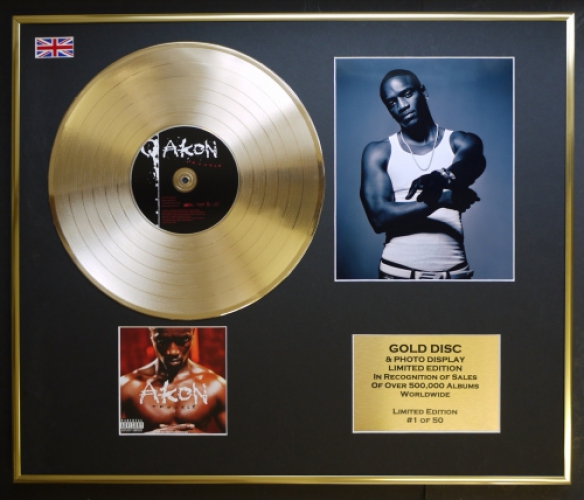


Whenever the yearning and heartache is allowed through, he's not persuasive, and he sounds like he still has the club on his mind. Akon hits on strippers (but does not fall in love with them), smacks behinds, and tends to go with what suits him best: bragging and seducing while delivering like-sounding hooks in his unique voice. The guest spots come from Eminem, Snoop Dogg, and Styles P, leaving no room for female hooks or verses. And all Password for Media Fires Links Tt c các Album + Single mình su tm u c mua t Itunes cht lng thì không phi ngh :laugh8kb: NEW UPDATE:. He even addresses his newfound fame, along with the expectations and other forms of grief that come with it, in a vague but very saddened way throughout "The Rain." For the most part, though, Konvicted offers more ultra-macho R&B. His second album, Konvicted, isn't much different from the debut (patchiness included), even though it comes from a different perspective. Kelly, Gwen Stefani, and even Elton John. Upgraded from writing songs and doing the occasional hook for B-, C-, and D-level artists, he tallied a multi-platinum album, was granted his own boutique label (which was used to spawn T-Pain), and became in-demand as an A-list collaborator - he worked with Young Jeezy, R. It is now a word to generally describe full-length albums released for free, which is the modern form of mixtape that was made a popular following by 50 Cent and his group G-Unit in the early 2000s, sometimes containing all original music, other times composed of freestyles and remixes of popular tracks."Locked Up"'s success provided Akon with instant heavyweight clout. In the hip hop scene, mix tape is often displayed as a single term mixtape.

Also since the 1990s, it describes releases used to promote one or more new artists, or as a pre-release by more established artists to promote upcoming "official" albums. Blend tapes became increasingly popular by the mid-1990s, and fans increasingly looked for exclusive tracks and freestyles on the tapes. Ron G moved the mixtape forward in the early 1990s by blending R&B a cappellas with hip hop beats (known as "blends").

In the mid-1980s, DJs, such as Brucie B, began recording their live music and selling their own mixtapes, which was soon followed by other DJs such as Kid Capri and Doo Wop. (who later became known as Whiz Kid) and DJ Super V would create personalized House Tapes which would eventually circulate throughout New York City. In the late 70's into the early 80's DJs began recording mixtapes out of their homes, referring to them as House Tapes. As more tapes became available, they began to be collected and traded by fans. Hip hop mixtapes first appeared in the mid-1970s in New York City, featuring artists such as Kool Herc and Afrika Bambaataa. In hip hop's earliest days, the music only existed in live form, and the music was spread via tapes of parties and shows.


 0 kommentar(er)
0 kommentar(er)
